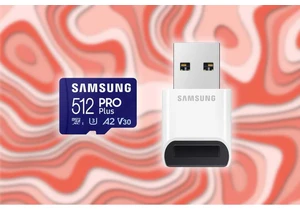With an increased focus on security and privacy, Google has been trying to reinvent the way the internet tracks users via tiny embedded files called cookies. It’s a tall order: Cookie-based advertising is the basis of the global digital advertising industry, including the ads you see on this very page. While reactions to Google’s new Privacy Sandbox initiative have been tepid at best, the company is expanding it from Chrome on desktops and laptops to Android phones.
Google announced that it will bring the Privacy Sandbox to its Android platform and mobile versions of Chrome slowly, gradually introducing its component parts over the next two years. In addition to working with software developers to “raise the bar for user privacy,” the company is offering public comments to users. This move is, to a greater or lesser degree, a response to Apple’s widely lauded iOS app tracking tools introduced last year. Google acknowledges it: “We realize that other platforms have taken a different approach to ads privacy”—but as a business that’s essentially built on profitable advertising, it can’t take the same radical stance Apple has.
Privacy Sandbox does away with conventional cookies, instead presenting advertisers with blocks of semi-anonymized users grouped together based on shared factors like interests, demographics, and behavior. It’s a less specific and more general means of targeted ads, sacrificing the hyper-specificity of the current system (where you’ll see ads for a new frying pan for days after an Amazon search) for a more general approach focused on user anonymity and safety.
At least, that’s how Google is presenting its cookie alternative: It’s been met with rebukes from other members of the advertising industry as well as outside privacy advocates. The Electronic Frontier Foundation says that the Federated Learning of Cohorts (FLoC) system would group users into potentially harmful targeted silos; the United Kingdom’s Competition and Markets Authority said the new system could undermine advertising competition; and the makers of Brave, Vivaldi, and Microsoft Edge browsers all said they weren’t interested in this new paradigm. Eventually Google let go of the FLoC idea, but is still going forward with the Privacy Sandbox grouping technique.
Despite Google’s plans to radically alter the way advertising on the web works, at least for users on Chrome and Android, it isn’t going to change overnight. “While we design, build and test these new solutions, we plan to support existing ads platform features for at least two years,” the blog post says. In the meantime you can manually delete your Google advertising ID and opt out of personalized ads on any Android phone or tablet. https://www.pcworld.com/article/615119/googles-troubled-privacy-sandbox-is-jumping-from-desktop-to-android.html
Connectez-vous pour ajouter un commentaire
Autres messages de ce groupe

If you’re ready to upgrade your PC experience while gaming or working

Buying toilet paper got ugly during the early part of COVID—between p

When it comes to versatile tech, microSD cards are certainly near the


Dell frequently has the best monitor deals of any major brand, and th

For some years now, smartphones have had a built-in feature that prot

Earlier this month, we heard rumblings that Google had plans to launc
